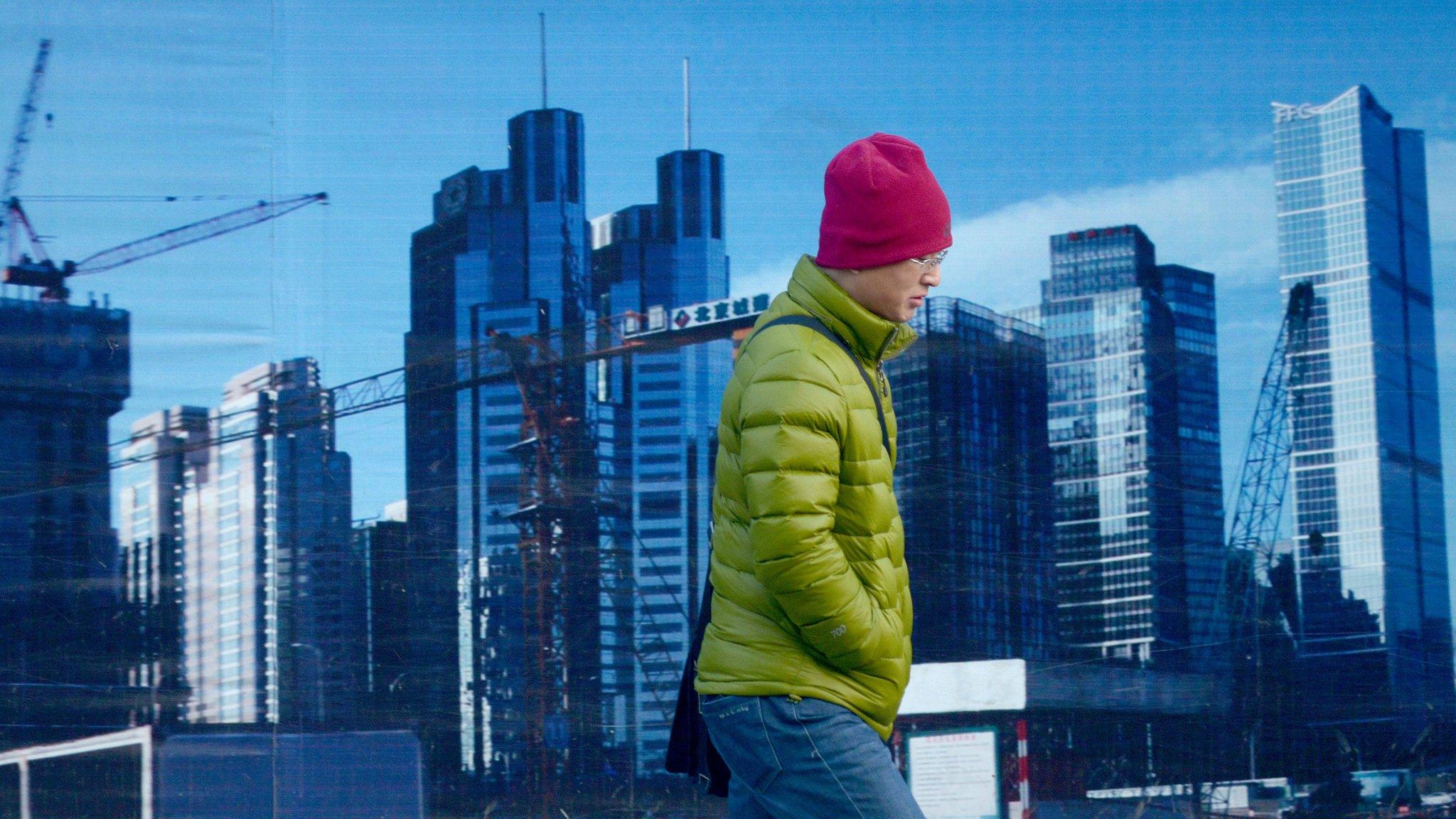Beijing's unique street life under constant siege
- Published
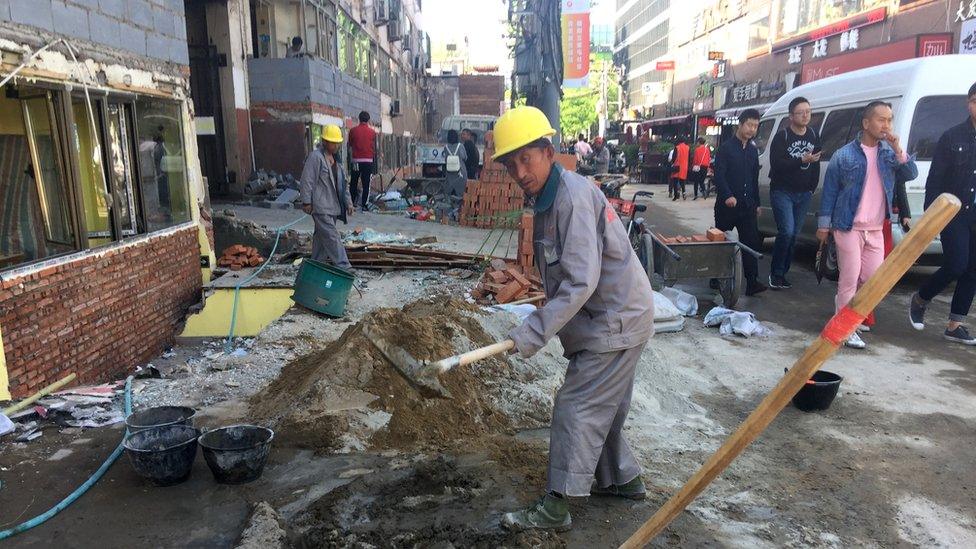
Beijing workers remodelling the city after knocking down small shops, restaurants, bars
You can't get too attached to things in Beijing. Your favourite restaurant, cafe, bar, park bench, row of trees, basketball court could be there one day and obliterated the next.
The current wave of destruction in the Chinese capital is working its way through the back streets where bars and restaurants are being 拆-ed (Chai-ed as the Chinese would say) because they are said to be lacking the correct building approvals.
This is apparently to restore the city to a type of grandeur that existed at some point, but it is unclear when that was.
Right across the Chinese capital workers with sledgehammers are moving in and knocking down outlets that gave the place a street-level bustle.
The officials who have ordered in the demolition teams would argue this is a necessary clean-up and there are definitely those locals who agree with them, at least in part.
The soul of Beijing
Beijing's historic alleyways - known as hutongs - have in recent times seen more and more shops and cafes being built and, in places, the residents feel this has been a noisy invasion into their once quiet lives.
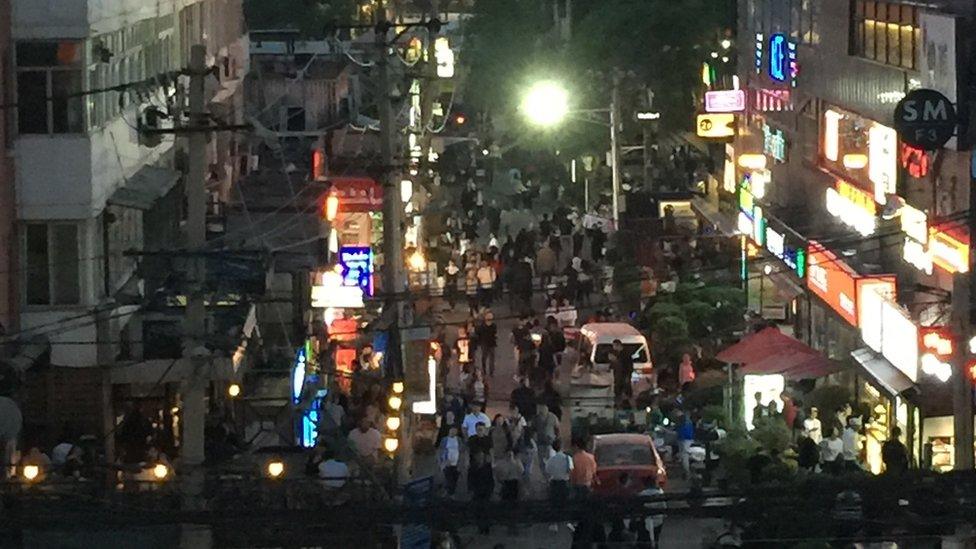
The last night of a bustling Beijing bar strip before demolition teams moved in
The worst example of this would have to be Nan Luo Gu Xiang, a hutong that within a few years went from being an arty alternative scene to a place crammed with busloads of tourists gulping down chain-store ice cream and bubble tea.
As with all town planning debates this is clearly not a black-and-white issue.
Yet what worries many about the current city government strategy - with its seemingly endless assault on small shops and restaurants in favour of corporate ventures in huge shopping centres - is that this is threatening the very soul of Beijing.
A cheap bowl of noodles around the corner served up by a waiter you know brings a sense of community that the mall cannot replicate.
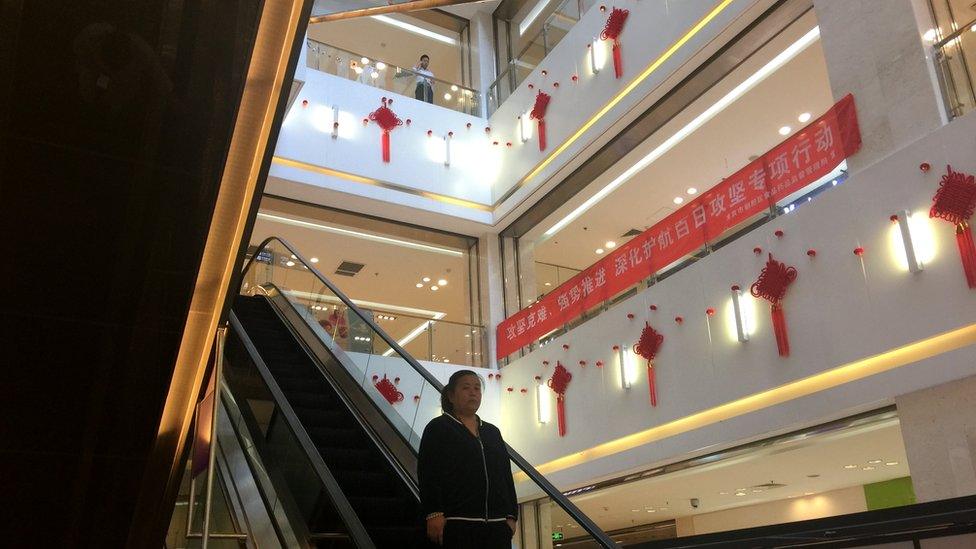
Some Chinese policy makers see the future of their cities inside air conditioned shopping centres
At the moment the telltale sign that a little row of bars and shops has only hours to survive is the delivery of a pile of bricks out the front.
Offending structures are then knocked down, the adjacent walls bricked up and, if needs be, a fence is put up to divide the remaining compound from the road.
This comes down to the age-old debate about what's charming and what's an eyesore.
A bohemian blend
Communist Party officials, who drive around in black Audis and wouldn't be seen dead in a hutong bar, seem quite perplexed at the affection people have for these tucked-away haunts and don't understand why anybody would not be more happy in the air-conditioned comfort of a mega shopping centre.
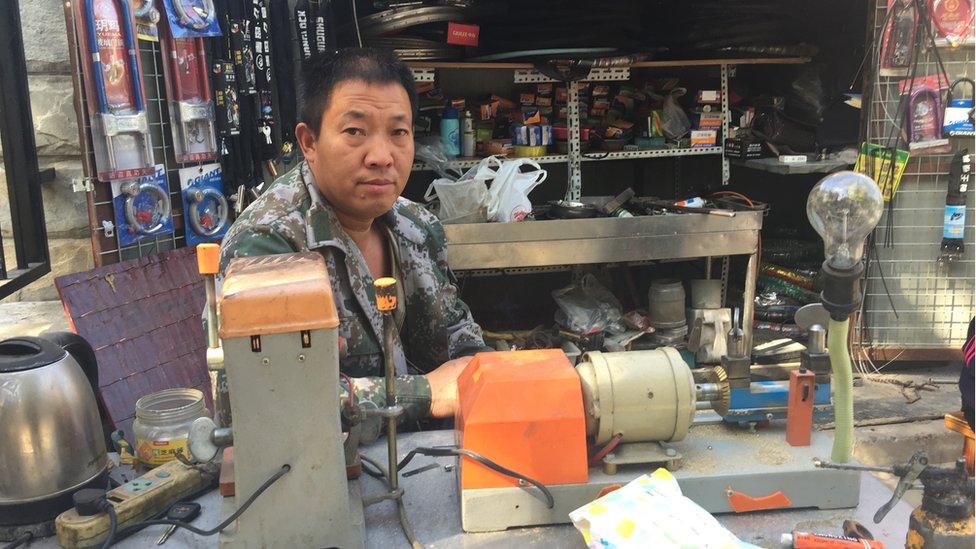
Beijing's street side businesses like bike fixers are under threat
Well, on the off chance that any of them are reading this, I'll explain.
When I first came to this city in the winter of 2003-04 there was a long strip of bars known as South Street. It was knocked down to make way for a huge modern shopping development in Beijing's Sanlitun area (or as everyone calls it, using the local dialect, Sanliturrrrr).
Smack in the heart of an ever more affluent part of town, the old South Street was a cheap, bohemian, student-friendly zone with bands and crucially where foreigners and ordinary Chinese people mixed together.
You could shout somebody a 10RMB beer and they could shout you one back. No worries! We were all equal.
The bulldozing of South Street transformed the area into a ritzy place for foreigners and affluent Chinese.
'Who cares about those dumps?'
There was, however, one little pocket of old Sanliturrrrr left: an alleyway which held out, linking the North and South precincts of "the Village" shopping complex with Vietnamese food, DVDs, shot bars, a tattoo emporium and the like.
Then the brick piles were delivered.
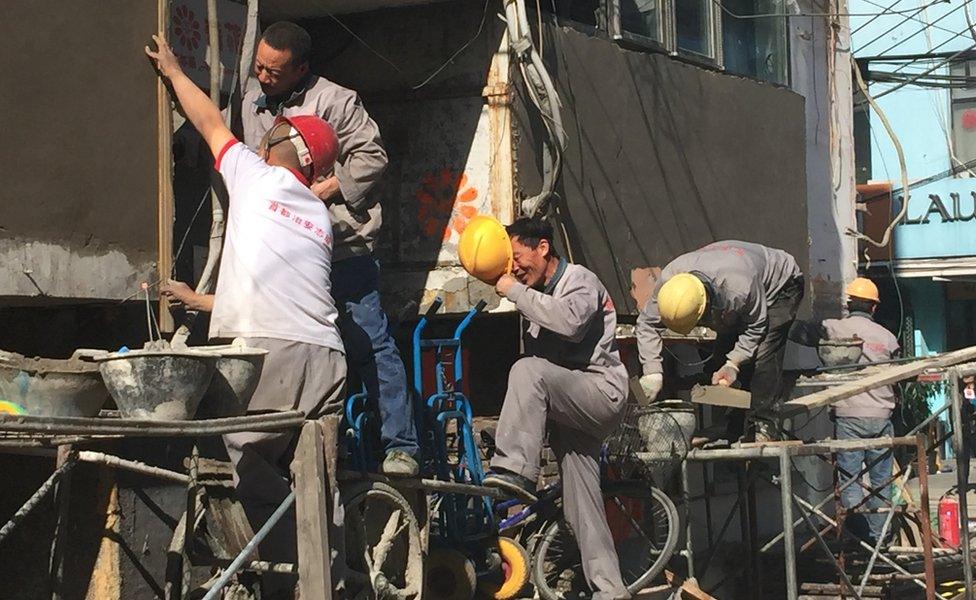
I mentioned the demolition in this street to a Chinese friend. I was obviously doing so in a lamenting tone because she looked at me a tad surprised and said: "Those dumps? Who cares? Get rid of them".
One person's little piece of accessible heaven is another person's slum.
In some cases the businesses have moved further into established buildings and will try to push on that way, but without an absolute street front and less access to passing customers many of them will struggle to survive.
A unique community
Another factor is that the people running and working in the places marked for destruction are normally "wai di ren" - they're not from Beijing.
To live in Beijing officially you need a document called a hukou. In wiping out businesses supporting outsiders trying to illegally stay on here with cash jobs there is also an element of tidying up the neighbourhood.
However, what it most feels like is the clean-up in the wake of the 2008 Olympics when those who sell street food were seen as a blight on Beijing - as not modern enough, as not clean enough - and told to stop operating.
What these policymakers don't seem to realise is that there are shopping malls all round the world. A unique, cultural, community contribution won't come from chain stores but from many of the businesses being shut down right now.
Then again, maybe that does not really bother them.
- Published11 March 2017
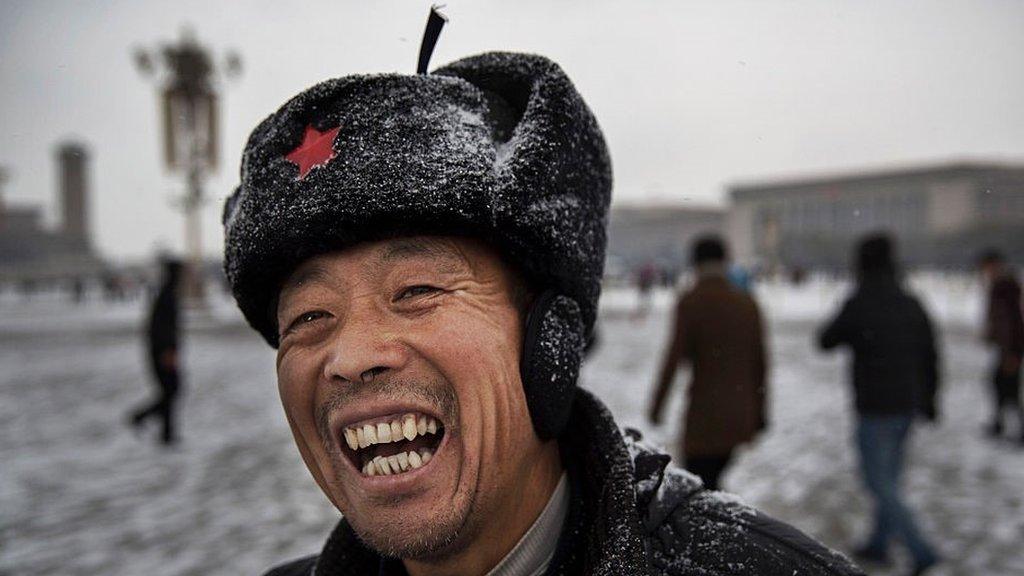
- Published4 May 2017
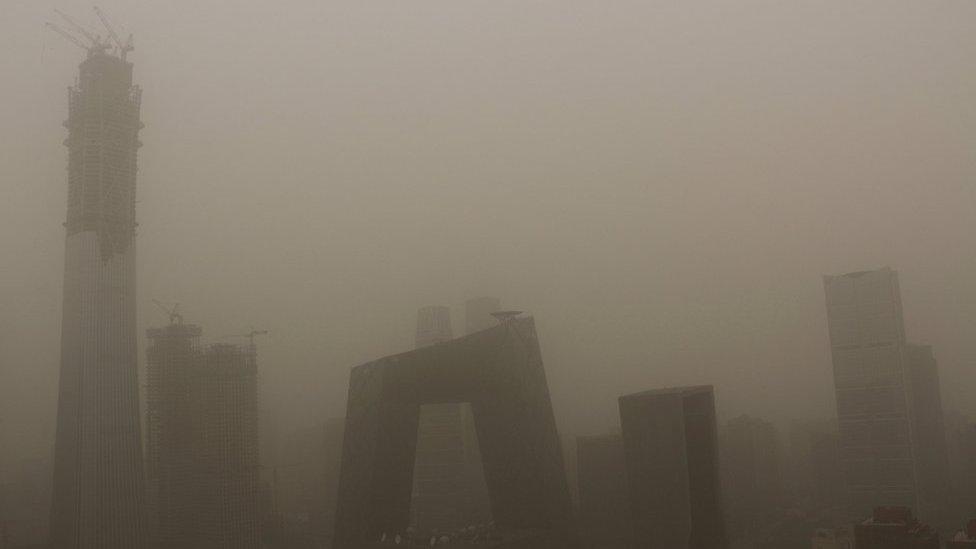
- Published15 December 2016
